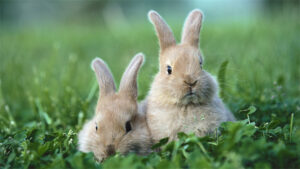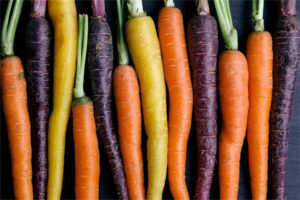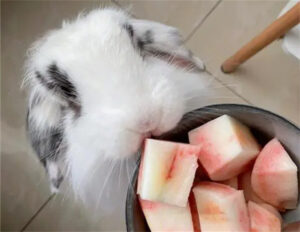As rabbit owners, we always want to ensure that our furry friends are healthy and happy. One question that often arises is whether or not chocolate is safe for rabbits to consume. While chocolate is a beloved treat for many humans, it is important to consider the potential risks it poses to our pets.
Chocolate contains a chemical called theobromine, which is toxic to rabbits and many other animals. Theobromine can cause a range of symptoms in rabbits, including vomiting, diarrhea, hyperactivity, seizures, and even death in severe cases. It is important to note that the amount of theobromine in chocolate varies depending on the type of chocolate and the amount consumed, so even a small amount of chocolate can be dangerous for rabbits.
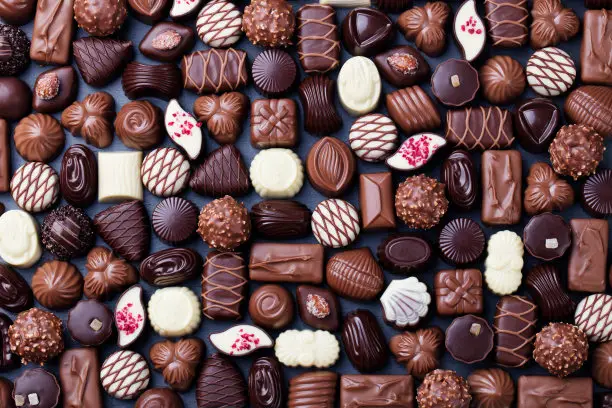
The Basics of Rabbit Nutrition
Rabbits require a balanced diet to maintain good health and prevent diseases. A balanced diet for rabbits should consist of hay, fresh vegetables, and a small amount of fruit. In this section, we will discuss the importance of a balanced diet and common foods for rabbits.
Importance of a Balanced Diet
A balanced diet is essential for rabbits because it provides them with all the necessary nutrients they need to stay healthy. A balanced diet should include hay, which is high in fiber and helps maintain healthy digestion. Fresh vegetables such as carrots, spinach, and kale provide rabbits with essential vitamins and minerals. Fruits such as apples and strawberries are also a great source of vitamins and minerals but should be given in small amounts as they are high in sugar.
It is important to note that rabbits have sensitive digestive systems, and sudden changes in their diet can lead to health problems. Therefore, it is recommended to introduce new foods gradually and in small amounts to avoid digestive issues.
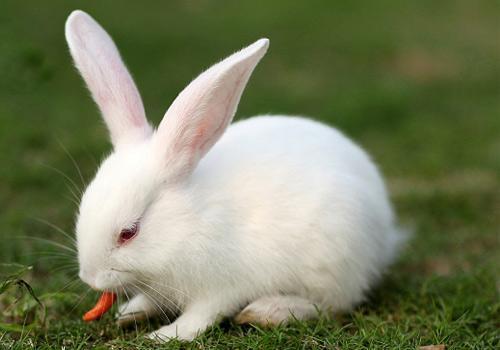
Common Foods for Rabbits
Hay is an essential part of a rabbit’s diet and should be available at all times. Timothy hay is the most popular type of hay for rabbits, but other types such as orchard grass and meadow hay can also be used.
Fresh vegetables such as carrots, spinach, kale, and parsley are excellent sources of vitamins and minerals for rabbits. It is recommended to feed rabbits a variety of vegetables to ensure they receive all the necessary nutrients.
Fruits such as apples, bananas, and strawberries can also be given to rabbits as a treat. However, it is important to remember that fruits are high in sugar and should be given in small amounts.
In conclusion, a balanced diet is crucial for the health and well-being of rabbits. Hay, fresh vegetables, and a small amount of fruit should be included in their diet to provide them with all the necessary nutrients. It is important to introduce new foods gradually and in small amounts to avoid digestive problems.
Chocolate and Its Components
When it comes to rabbits, chocolate is a food that should be avoided. This is because chocolate contains two compounds that can be harmful to rabbits: theobromine and caffeine.
Theobromine Toxicity
Theobromine is a compound found in chocolate that is toxic to rabbits. It belongs to a group of compounds called methylxanthines, which can cause a range of symptoms in rabbits, including vomiting, diarrhea, hyperactivity, tremors, seizures, and even death. The severity of the symptoms depends on the amount of theobromine ingested and the size of the rabbit. Dark chocolate contains more theobromine than milk chocolate, making it more toxic to rabbits.
Caffeine Content in Chocolate
Caffeine is another compound found in chocolate that can be harmful to rabbits. Like theobromine, caffeine is a methylxanthine that can cause a range of symptoms in rabbits, including restlessness, rapid breathing, heart palpitations, muscle tremors, and seizures. The amount of caffeine in chocolate varies depending on the type of chocolate and the brand, but it is generally higher in dark chocolate than in milk chocolate.
It is important to note that rabbits have a sensitive digestive system and are prone to digestive issues. Therefore, it is best to avoid feeding rabbits any type of chocolate or foods that contain chocolate as an ingredient. Instead, rabbits should be fed a balanced diet of hay, fresh vegetables, and a small amount of pellets.

Hazards of Chocolate to Rabbits
As much as we love chocolate, it is not safe for our furry friends, especially rabbits. Chocolate contains a chemical called theobromine, which can be toxic to rabbits in large amounts. In this section, we will discuss the hazards of chocolate to rabbits in detail.
Digestive System Complications
When rabbits consume chocolate, it can cause digestive system complications. The theobromine in chocolate can cause diarrhea, vomiting, and abdominal pain in rabbits. These symptoms can lead to dehydration, which can be fatal if not treated promptly. Additionally, chocolate can cause intestinal blockages, which can require surgery to remove.
Neurological Risks
Theobromine in chocolate can also affect a rabbit’s nervous system. It can cause hyperactivity, tremors, seizures, and even death in severe cases. Rabbits are particularly sensitive to theobromine, and even small amounts can affect their neurological system.
It is essential to keep all chocolate and chocolate-containing products away from rabbits. Even a small amount of chocolate can be harmful to rabbits. If you suspect that your rabbit has ingested chocolate, contact your veterinarian immediately. They can provide you with the necessary guidance on how to treat your rabbit and prevent any complications from occurring.
In summary, chocolate is not safe for rabbits. It can cause digestive system complications and neurological risks, which can be fatal if not treated promptly. As responsible pet owners, we must keep all chocolate and chocolate-containing products away from our furry friends to ensure their health and well-being.
Symptoms of Chocolate Poisoning
When rabbits consume chocolate, they can experience a range of symptoms that can be fatal if left untreated. Here are some common symptoms of chocolate poisoning in rabbits.
Physical Signs
Rabbits that have ingested chocolate may exhibit physical signs such as vomiting, diarrhea, and hyperactivity. Additionally, rabbits may experience a rapid heartbeat, increased breathing rate, and high blood pressure. These physical signs can lead to dehydration, which can be dangerous for rabbits.
Behavioral Changes
In addition to physical signs, rabbits may also exhibit behavioral changes after consuming chocolate. Rabbits may become restless, agitated, or lethargic. They may also experience tremors, seizures, and even coma in severe cases. These behavioral changes can be alarming and may require immediate medical attention.
It is important to note that not all rabbits will exhibit the same symptoms of chocolate poisoning. Some rabbits may only experience mild symptoms, while others may experience severe symptoms. If you suspect that your rabbit has ingested chocolate, it is important to seek immediate veterinary care to prevent further complications.

Preventive Measures
To keep rabbits safe, there are a few preventive measures that rabbit owners can take. These measures include providing safe alternatives to chocolate and educating rabbit owners.
Safe Alternatives to Chocolate
One way to prevent rabbits from eating chocolate is to provide them with safe alternatives. Fresh fruits and vegetables, such as carrots, apples, and strawberries, are healthy and delicious treats for rabbits. Additionally, there are many commercial rabbit treats available that are specifically designed for rabbits and are safe for them to eat. These treats can be found at most pet stores and online.
Educating Rabbit Owners
Another important preventive measure is to educate rabbit owners about the dangers of chocolate. Many people are not aware that chocolate can be harmful to rabbits, so it is important to spread the word and raise awareness. This can be done through social media, blogs, and other online platforms, as well as through local pet stores and veterinary clinics.
By taking these preventive measures, we can help keep rabbits safe and healthy. Remember, chocolate may be a delicious treat for humans, but it is not safe for our furry friends.

Emergency Response
First Aid Steps
If you suspect your rabbit has ingested chocolate, the first step is to remove any remaining chocolate from their reach. Chocolate can be toxic to rabbits, so it’s important to act quickly.
Next, monitor your rabbit for any symptoms of chocolate toxicity, such as vomiting, diarrhea, or lethargy. If your rabbit is exhibiting any of these symptoms, contact your veterinarian immediately.
When to Consult a Vet
If your rabbit has ingested a small amount of chocolate and is not showing any symptoms, it may not be necessary to consult a vet. However, if your rabbit has consumed a large amount of chocolate, or if they are showing any symptoms of chocolate toxicity, it’s important to seek veterinary care as soon as possible.
Your vet may recommend inducing vomiting to remove any remaining chocolate from your rabbit’s system. They may also administer fluids to help flush out the toxin and provide supportive care to manage any symptoms.
Remember, prevention is key when it comes to chocolate toxicity in rabbits. Keep all chocolate and other potentially harmful foods out of your rabbit’s reach to ensure their safety and well-being.
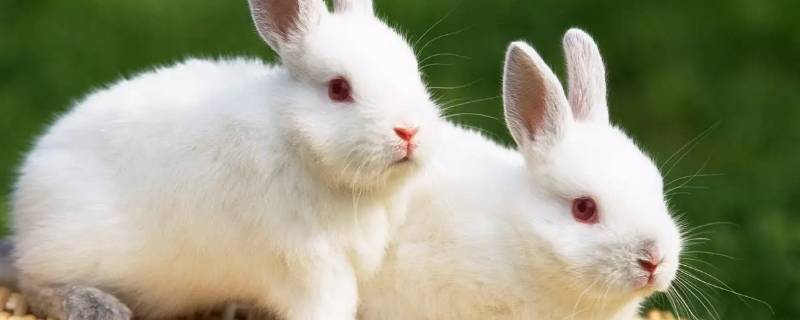
Case Studies and Statistics
When researching the topic of whether chocolate is dangerous for rabbits, we came across a few case studies and statistics that shed some light on the issue.
One study conducted by the University of Pennsylvania School of Veterinary Medicine found that chocolate toxicity is a common cause of emergency visits for rabbits. The study analyzed data from over 1,000 cases and found that rabbits who ingested chocolate had a higher risk of developing gastrointestinal issues and seizures.
Another study conducted by the University of California, Davis, found that theobromine, a compound found in chocolate, can be toxic to rabbits. The study found that rabbits who ingested even a small amount of theobromine experienced symptoms such as hyperactivity, tremors, and seizures.
It’s important to note that not all rabbits will have the same reaction to chocolate. Some rabbits may be more sensitive to theobromine than others. However, it’s best to err on the side of caution and avoid giving rabbits chocolate altogether.
In conclusion, while there may be some variation in how rabbits react to chocolate, the evidence suggests that it can be dangerous for them. If you suspect that your rabbit has ingested chocolate, it’s important to seek veterinary care immediately.
